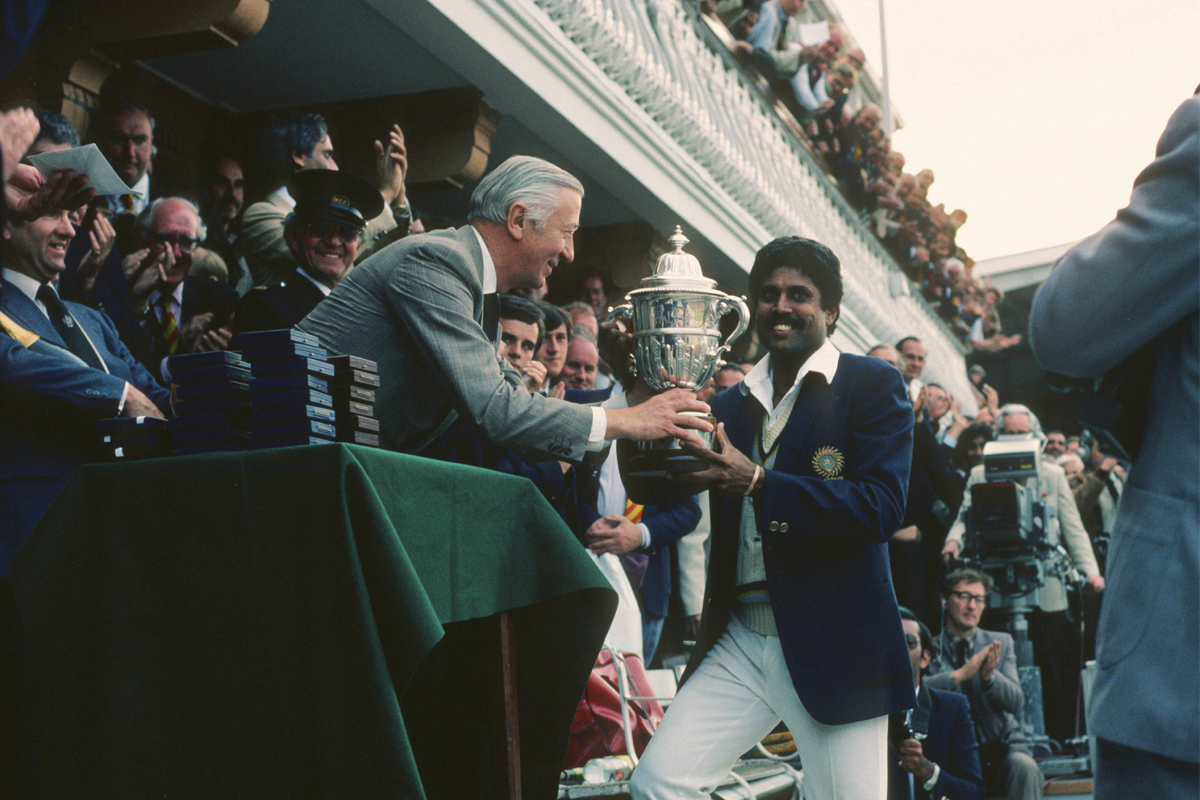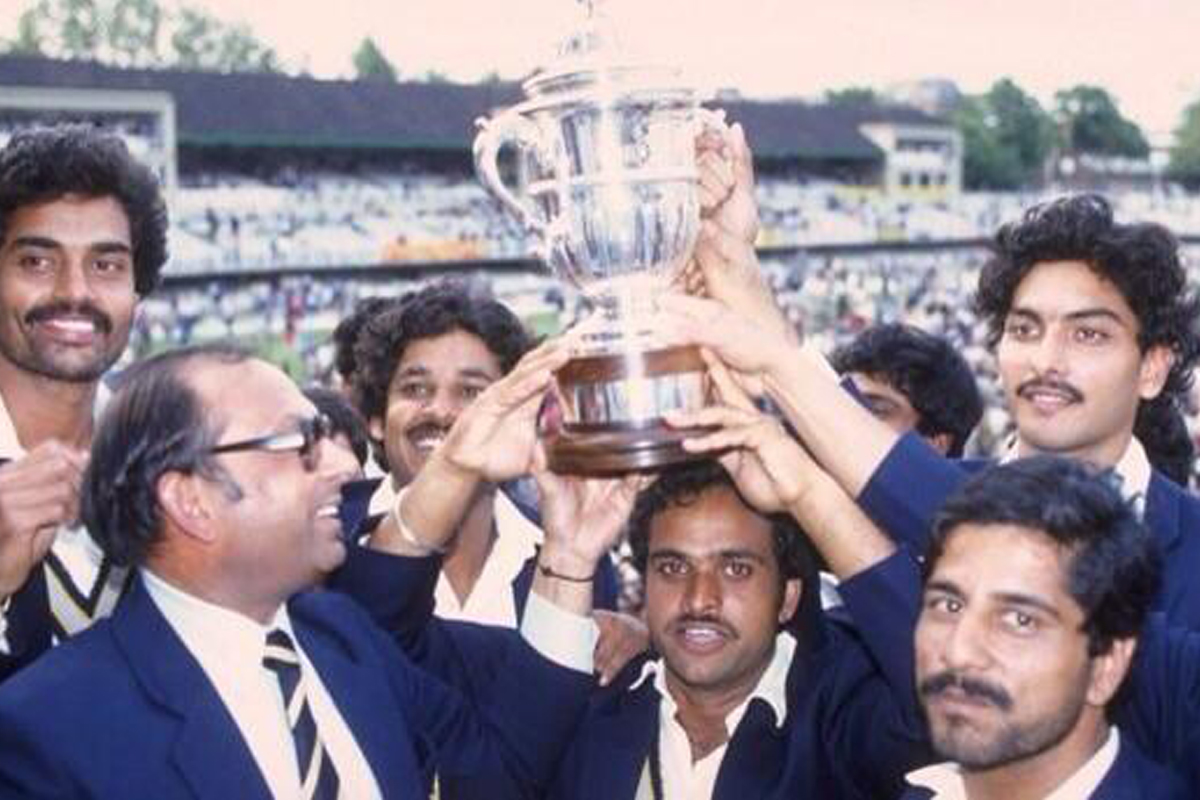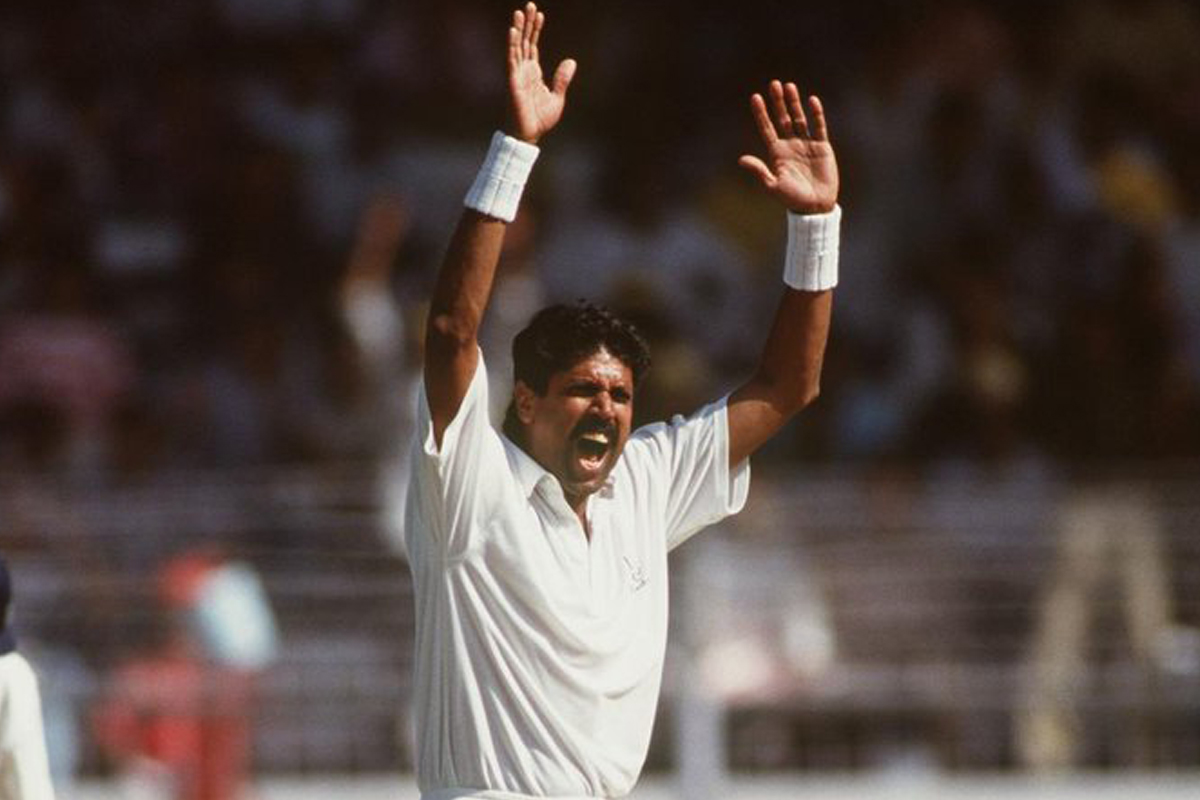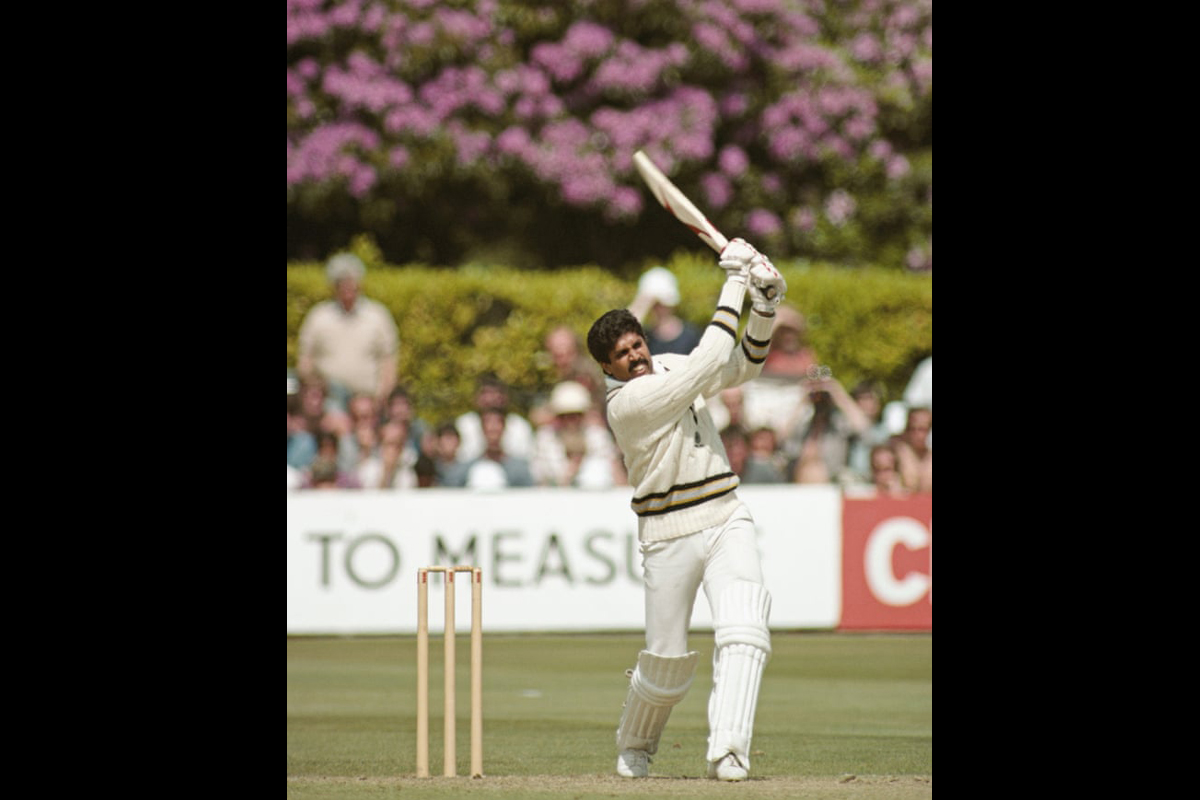Shreyas Iyer doubtful for Rajkot test
According to a media report, Iyer is currently undergoing rehabilitation at the National Cricket Academy (NCA) in Bengaluru for his injury.
The 1983 World Cup win made cricket a tool for a third world country to set itself free from the colonial shackles and forge its own identity.

Kapil Dev receiving the 1983 World Cup (known as Prudential Cup) after beating the West Indies in the final at Lord's. (Photo: Twitter/@HomeOfCricket)
June 25 was the day when India made their Test debut and June 25 was also the day that changed the course of cricket in the country. Both the dates, separated by 50 years, are marked in golden letters in the history of sports in India. But it is the latter that holds a more illustrious significance in the minds of this country.
The author of The History of Indian Cricket, Mihir Bose, said in his book that the 1983 World Cup win was not merely a victory but an establishment of belief for millions of Indians that it could share the same podium with the English and the Americans. Rightly so, the World Cup win made cricket a tool for a third world country to set itself free from the colonial shackles and forge its own identity.

Advertisement
Krishnamachari Srikkanth, one of the openers in the Indian team which won the 1983 Cricket World Cup, has always joked around that how the historic triumph had cancelled his honeymoon to the United States of America.
As it happened, Srikkanth had left Bombay to reach New York with a stopover in London for a few days to participate in the World Cup. He, like many, had little expectations from the team about doing much in the multi-nation tournament.
But the team’s psyche went through a collective change on the first day of the competition when they unexpectedly trounced over the two-time World Champions, the West Indies.
Posting a mammoth score of 262 against the mighty Caribbean attack, including the brutal pace quadrat of Malcolm Marshal, Andy Roberts, Joel Garner and Michael Holding, and then defending it against the likes of Clive Lloyd, Desmond Haynes, Gordon Greenidge and Sir Viv Richards instituted a sense of confidence that the underdog Indian team was alienated from.
The belief had been instilled but the dare to administer it on the field was lacking and that is what the audacious captaincy of a 24-year-old farmer’s son from Haryana, named Kapil Dev, injected into the players.

The ride after the opening match was not smooth as India lost two of their next three matches against the West Indies and Australia. However, the skipper was not ready to give in easily and produced a moment of magic in the next match to reflect what medium-pacer Balwinder Singh Sandhu had recalled decades later – Kapil had everything planned in his mind.
It was June 18 and India faced Zimbabwe, searching for a desperate win to keep their case for the knockouts relevant. Batting first, India were down to five wickets with only 17 runs on the board and Roger Binny joining his captain. Partnering him, Kapil tried to steady the ship but managed to add only meager-yet-watchful 60 runs. Ravi Shastri then came and disappeared and no one realised.
At 78/7, Kapil joined hands with Madan Lal. Discerning that a cautious approach would not get his team far, the Indian captain took to the offensive mode. But, Madan Lal could not prove much of his worth with the bat and contributed only 17 runs in his partnership of 62 runs with his skipper.
Unable to find a steady partner at the other end and with only two wickets remaining, Kapil did what any other batsman in his place would have done. He unleashed the beast in his willow. He smashed the Zimbabwean bowlers all across the perimeter of the Tunbridge Wells, unaware that each of his strokes was a word in the script of one of the greatest ever ODI innings.

But to what can easily be called the greatest shame in cricket’s history, Kapil’s knock was not telecast and consists of no visual evidence except for a few photos.
Such was the dominance of Kapil that he alone piled up 100 runs in the ninth-wicket stand of 126 between him and Syed Kirmani. While he batted his way towards history and scored an unbeaten 175, Kirmani, the wicketkeeper-batsman, made sure that Kapil was not left alone in the middle. He played a crucial knock of 24 off 56 deliveries.
As Kapil had rightly said, his knock helped the Indian players reaffirm trust and confidence among each other. The Indian team then outplayed Australia in the group stage and England in the semi-final to find themselves in the gateway of immortality.
The first innings of the final on June 25 at Lord’s – the mecca of cricket – turned out to be exactly what the Indian fans were fearing. A bloodthirsty West Indies attacked ripped apart the Indian batting and bundled them for a paltry total of 183.port
Though Balwinder Sandhu gave India a good start with a quick wicket of Gordon Greenidge, Viv Richards appeared to carry everything that an Indian nightmare was made of. With his usual flamboyance and charisma, he threatened to take greatness away from India’s reckoning.
But, as the tale goes, the stars had conspired a different story and the Indian captain was the victor in it. Kapil’s moment of brilliance in the final came when Richards played an untimed pull short off Madan Lal’s delivery.
The ball went high into the Lord’s sky near the fine-leg region and landed in the hands of Kapil who had by then covered good 50 yards with a sideways run. And like it had happened throughout the tournament, it took another exemplary effort from the Haryana Hurricane to hold the mirror in his team’s face.
The rest is a story well versed in the history of Indian sports.
Advertisement